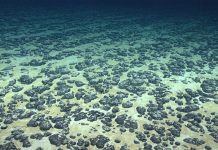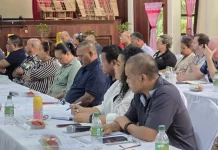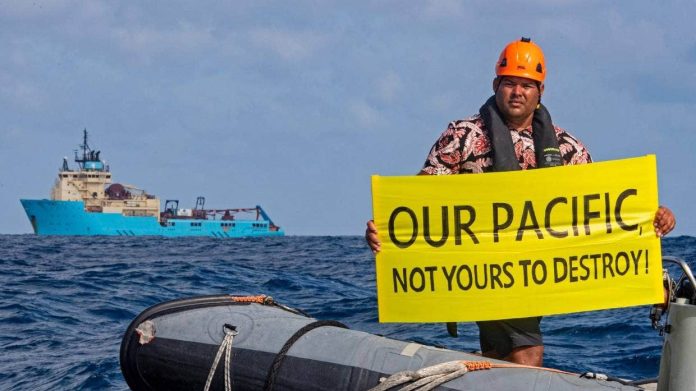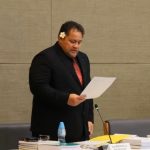Greenpeace is urging the International Seabed Authority (ISA) to halt plans the environmental group claims will allow destructive deep-sea mining to begin – starting in the Pacific.
The ISA Council is meeting in Jamaica this week to discuss regulations that will determine where and how the sea floor can be mined.
But Greenpeace Aotearoa campaigner James Hita has accused the ISA of drafting plans behind closed doors, and shutting out the communities that would be “impacted first and hardest” if the emerging industry went ahead.
Hita said the New Zealand Government, which is in attendance, must stand in solidarity with Pacific neighbours and join the alliance calling for a moratorium on the “destructive” industry.
As an official observer at the meeting in Kingston, Greenpeace is urging decision makers to stop deep-sea mining.
“Greenpeace is part of an alliance of Pacific nations, scientists, youth activists and civil society organisations calling for a moratorium on the industry which could wreak havoc on one of the world’s most fragile ecosystems and exacerbate climate change,” Hita said.
Victor Pickering, a Greenpeace International activist from Fiji in front of the Maersk Launcher, a ship chartered by DeepGreen, one of the companies spearheading the drive to mine the barely understood deep sea ecosystem.
“Deep-sea mining is a highly destructive practice that bulldozes the sea floor, decimating sea life and biodiversity, releasing carbon and causing even more stress on ocean ecosystems that are already on the brink.
“We have a once-in-a-lifetime opportunity to stop deep-sea mining before it starts. We’re calling on the New Zealand Government to support a halt to seabed mining.
“The message from our Pacific neighbours is clear: We need urgent action on deep-sea mining to protect the ocean that connects and nourishes us. Deep-sea mining is a threat to us all, the ocean is home to over 90% of life on Earth and is one of our greatest allies in the fight against climate change.”
New Zealand has been taking part in negotiations to set up laws on deep-sea mining at the ISA, and may call for no such mining to occur if the negotiations fail to produce “effective” environmental protection, the Government said.
Scientists have warned that deep-sea mining will likely lead to irreversible biodiversity loss, disturbance of one of the world’s largest carbon sinks and damage to fragile ocean ecosystems, which provides benefits such as medicines and fisheries, Hita said.
New Zealand research centre Niwa will help deep-sea miner Metals Company reduce possible damage caused by its planned mining of the Pacific Ocean sea floor, in particular the Clarion Clipperton Zone – an area of international seas to the east of Kiribati.
The move has divided the Pacific nations: Nauru and Kiribati have sponsored mining projects, and the Cook Islands approved three exploration licences in February. But Palau, Fiji, Samoa and the Federated States of Micronesia (FSM) recently launched an alliance calling for a moratorium on any seabed development.
Chile also submitted a letter to the United Nations Convention on the Law of the Sea calling for a 15-year moratorium on the nascent industry. Over 200 members of Parliament from 47 different countries have also called for a moratorium on deep-sea mining.
Last month, Greenpeace Aotearoa launched a petition calling for a global ban on deep-sea mining which has been signed by nearly 10,000 people.
Already facing criticism for its lack of transparency, inclusiveness and accountability, the ISA cut its livestream coverage of negotiations earlier this week – preventing interested parties from participating remotely.
Led by Costa Rica, a group of attending countries including Canada, Russia, Italy, Chile, Spain, Dominican Republic, Belgium and New Zealand called for transparency.
Greenpeace invited two Pacific activists to attend this session of the ISA on its delegation to support the voices of people who will feel the impacts of deep-sea destruction the most.
“The deep-sea is one of the great unknowns, and like much of outer space, it’s largely unexplored,” Hita said.
“Imagine if instead of sending research tools to Mars, we sent missiles to destroy it. This is essentially what deep-sea mining will do to these unexplored parts of this beautiful blue planet.”
The International Seabed Authority meeting in Jamaica ends on Friday.
SOURCE: STUFF NZ/PACNEWS














